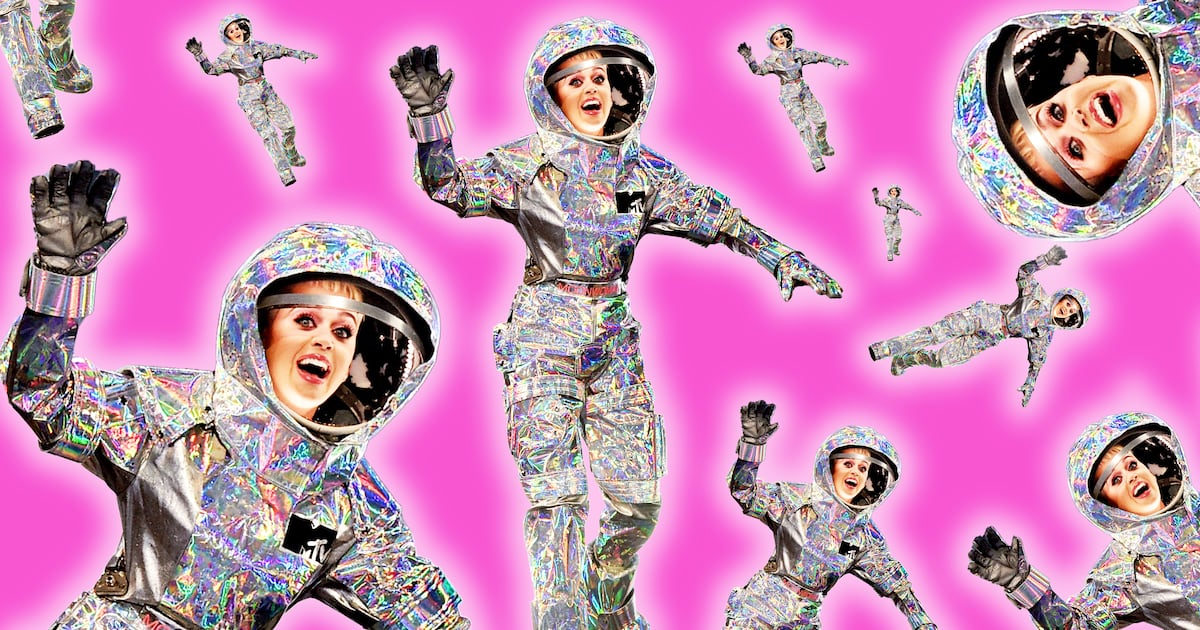In 2022, it’s well established that television doesn’t need to be good in order to sustain our attention. The “guilty pleasure” of consuming reality television and soap operas has proved as much. Plus, with the experience of live-tweeting and meme-sharing, it’s never been more fun to bond over abhorrent writing, spot errors in continuity, and roast annoying characters. Just look at the discourse around HBO Max’s And Just Like That… and the internet’s response to Che Diaz or the streaming platform’s other sloppy reboot Gossip Girl.
In a not-so-surprising turn of events, the already polarizing Euphoria has become the target of intense Twitter mockery and memes halfway into its sophomore season. From its abandonment of certain character arcs to creator Sam Levinson’s clunky dialogue to its bombastic social commentary, the teen drama has given its viewers plenty to be confused and borderline upset about. Vulture film critic Alison Willmore summed up viewers’ reactions to the new season the best, tweeting, “I don’t watch EUPHORIA but I love EUPHORIA Twitter because it’s so hard to tell who’s hate watching and who’s watching the show because they actually like it.”
Either earnestly or jokingly, I’ve seen many people compare the experience of watching Euphoria’s first season to the state of being high, which arguably works for a show told partially through the lens of a drug addict. Its startling visuals, harsh score and frenetic camera work—in addition to the show’s dark subject matter and exaggerated emotions—all felt like purposeful stylistic choices meant to provide an overwhelming sensory experience. But beyond all the frills, the series introduced us to a deeply fascinating set of characters performed by brilliant, up-and-coming actors who have become beloved celebrities over the short span of two years. Likewise, many fans don’t feel like they’re being rewarded for their investment in the show’s subjects this second time around, as Levinson has struggled to evenly showcase the ensemble.
Season 2 started off with two exciting developments: a shocking hookup between Cassie and Nate and a flirtation between fan-favorites Fezco and Lexi. Levinson has been mostly interested in depicting the former, particularly Cassie’s obsession with Nate and explicit sex scenes of the two of them. This affair has outweighed other storylines, including the central character Rue and her struggles with sobriety. It makes sense that Levinson would indulge in this particular subplot over the rest considering his penchant for building suspense for terrible outcomes. But fans have noticed the lack of story and reduced screen time for other intriguing characters—primarily Kat, played by Barbie Ferreira, who’s appeared briefly in episodes to express discontent about her relationship with Ethan before disappearing into the background. (I’ve speculated that Levinson doesn’t know what to do with a healthy, wholesome relationship, while the online rumor mill is saying that Levinson and Ferreira have had a falling-out).
On the other hand, Lexi has had an increased role this season, but Levinson still hasn’t given her much of an inner life beyond being a foil to Cassie. Additionally, the much-anticipated romance between her and Fez has not come to fruition yet, though we still have a few more episodes to go. Most surprisingly, Zendaya’s Emmy-winning performance as Rue has been rather tedious to watch, as she primarily shows up to perfunctorily remind us that she’s not sober or to snort an excessive amount of drugs. In the first season, her drug use and ability to find herself in other dangerous situations was genuinely frustrating, saddening, and nerve-wracking. But watching her slump around in the same oddly functional state episode after episode, with little to do beyond that, has lessened the anxiety of observing her addiction.
Season 2, particularly the last two episodes, has also taken a weird interest in its least empathetic character, Cal Jacobs. In an attempt to infuse Nate’s menacing father with some humanity, Levinson gave him an undeserved out for his predation on other queer people by revealing that the birth of his oldest son was unplanned and derailed his budding romance with a male classmate. His backstory, while unfortunate, was not uniquely tragic or sufficient in explaining his habit of filming sex partners without their consent. Yet he got to exit the show in a triumphant manner that has some viewers strangely applauding his boldness for coming out and openly hating his family.
It’s fair to assume that some of the current disdain for Euphoria is born out of leftover hatred for Levinson’s 2021 Netflix feature Malcolm & Marie and the reputation the filmmaker built for himself in the aftermath. The poorly received, dialogue-driven two-hander highlighted Levinson’s weak spots as a screenwriter and ill-informed ideas about film criticism, Hollywood and race, subsequently making him the target of ridicule on Film Twitter. Hence, Euphoria fans have no reservations about pointing out the overwrought dialogue and poor directing this season, going so far as to label Levinson “the white Tyler Perry.”
Despite its current season disappointing fans, “Euphoria Sundays” and the following Mondays on Twitter, overflowing with memes, stills and reaction tweets, have become their own holiday. Considering the pandemic has given us less and less to look forward to, it makes sense that consuming the show, regardless of quality, has made for a fun communal experience at the very least. Additionally, folks have also been arguing that the series is easier to digest when consumed as a comedy or even a reality show rather than a “prestige” drama.
From the looks of the internet, to love Euphoria is to hate it while loving the characters but wanting to rewrite it while also being deeply invested in its storylines—an experience as chaotic as the show itself.






